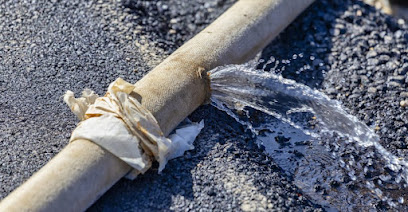Leaks in concrete slab, how to find and what causes them
A common problem that plagues homes is leaks in concrete slab. These can be caused by cracks or holes in the foundation, improperly sealed joints between the walls and floors, or even damaged plumbing. A professional contractor can help you find these problems before they become serious issues.
Professional tone with an engaging subject matter to hook readers into reading further.
A slab leak is a water leak that originates from the bottom of a slab, typically where it meets another surface. There are many ways to detect slab leaks, and this page will highlight them as well as explain what causes slab leaks and how to fix concrete slab leak.
To treat slab leaks, you'll need a few tools and materials, such as butyl tape, concrete slab repair kits , caulk dust packets, utility knife blades , electric hand saws , and a garden hose . First off, use the water from your garden hose to soak the ground around where you think or know there is a slab leak. Using an electric hand saw, cut a space in the slab big enough for a slab repair kit to fit into. After inserting the slab repair kit into the hole you've created from cutting it out of the slab, place butyl tape on all four sides of it. Add two inches worth of butyl tape onto each side of the slab repair kit to ensure maximum slab leak prevention. Use the garden hose again to water down the slab repair kit for thirty minutes after application. You may also want to use caulk dust packets by sprinkling them over the slab in an area no larger than 4 inches x 6 inches , which is big enough for one slab leak treatment kit to fit in.
Slab leaks can be detected and treated using these methods, but they are not always easy to detect or fix when you do not know where exactly they are coming from. If slab leaks continue occurring in your concrete slab, call a professional plumber .
Slab leaks are water leaks that originate from below a slab, typically where slab meets other surface. There are many ways to detect slab leaks and this article will show you how to find slab leaks and treat slab leaks.Detecting slab leaks can be difficult if you don't know exactly where they're originating from so before going any further, test your slab for cracks and wet spots. The best way to find a slab leak is by using caulk dust . Caulk dust works like magic when trying to locate slab leaks because the dry powder absorbs moisture at an accelerated rate when in contact with liquid water , meaning the slab leak will be easier to find. To treat slab leaks, you'll need a few tools and materials, such as butyl tape, concrete slab repair kits , caulk dust packets, utility knife blades , electric hand saws , and a garden hose .
Conclusion :
The best way to find a leak in your concrete slab is with water. Put some water on the floor and see where it leaks out. Once you’ve found the hole, patch it up as soon as possible! It can lead to more expensive problems down the road if neglected for too long. If this sounds like something you need help with, contact EZ Leak Detection today so we can get started helping you fix things before they become worse or even dangerous!
Author Bio: - Karl Brown
Karl, a marketing manager at EZ Leak Detection, loves to write about plumbing and HVAC services to make the life of the reader easier. Leakages in your property can be dangerous but not all the leaks are easily accessible. He has given extensive information about water leak and slab leak and tips to detect them quickly along with quick solutions to prevent you from inconveniences and health hazards.
Leakage problems and malfunction of appliances demand comprehensive solutions. Also, regular maintenance is not the thing to be missed for leading life with zero hassles. Read our recent post related to leakage detection and repair, alerts for HVAC shutdown and how to repair it, and installation of AC and water heater in San Diego.





Comments
Post a Comment